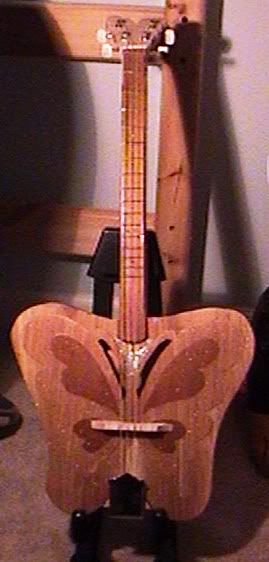I know this is kinda vague and very general as a topic. Here are some more specifics as it pertains to what I am doing...
I want to make carved body historical musical instruments when I semi-retire in (hopefully) a dozen years or so (I turn 50 late this year).
Here are a couple of pages with prices from an established luthier who makes and sells the types of instruments I am beginning to make:
http://www.rolandinstrument.com/ind/index.php?lang=3
Note those prices are in Euros; in dollars it would be roughly 50% higher, so his prices are from about $900 to about $2300 for the fiddles. This is not top tier; just a reasonably good luthier who has been at it a while.
At the other end of the spectrum, you have this sort of stuff:
http://www.worldmusicalinstruments.com/c-66-rebec.aspx
Those are actually luthier made; the demand isn't high enough for factories to churn these things out. Yes, a lot of that is 3rd world economics but I don't want to go off on that tangent. But it also reflects the quality as well; they don't spend much time tuning the tops or getting the joints perfect.
My point is the first site is an example of what people are willing to pay for quality work and the second is how little you can pay for lower quality. The sad truth is that my work is likely to be a lot closer to the cheap ones than the good ones for a while. It's just not something you can learn to be good at right away.
This is something of a happy medium:
http://larkinthemorning.com/search.asp?t=ss&sb=0&ss=luthier+N+Sweet.
I need to quote a price to someone on a citole almost identical to the one on that page.
I want to make the instrument whether I sell it to the first person asking about it or not, but my preference is certainly to get it out there being played. My material costs are pretty low and I will be slow in delivering it.
Thoughts?
I want to make carved body historical musical instruments when I semi-retire in (hopefully) a dozen years or so (I turn 50 late this year).
Here are a couple of pages with prices from an established luthier who makes and sells the types of instruments I am beginning to make:
http://www.rolandinstrument.com/ind/index.php?lang=3
Note those prices are in Euros; in dollars it would be roughly 50% higher, so his prices are from about $900 to about $2300 for the fiddles. This is not top tier; just a reasonably good luthier who has been at it a while.
At the other end of the spectrum, you have this sort of stuff:
http://www.worldmusicalinstruments.com/c-66-rebec.aspx
Those are actually luthier made; the demand isn't high enough for factories to churn these things out. Yes, a lot of that is 3rd world economics but I don't want to go off on that tangent. But it also reflects the quality as well; they don't spend much time tuning the tops or getting the joints perfect.
My point is the first site is an example of what people are willing to pay for quality work and the second is how little you can pay for lower quality. The sad truth is that my work is likely to be a lot closer to the cheap ones than the good ones for a while. It's just not something you can learn to be good at right away.
This is something of a happy medium:
http://larkinthemorning.com/search.asp?t=ss&sb=0&ss=luthier+N+Sweet.
I need to quote a price to someone on a citole almost identical to the one on that page.
I want to make the instrument whether I sell it to the first person asking about it or not, but my preference is certainly to get it out there being played. My material costs are pretty low and I will be slow in delivering it.
Thoughts?

